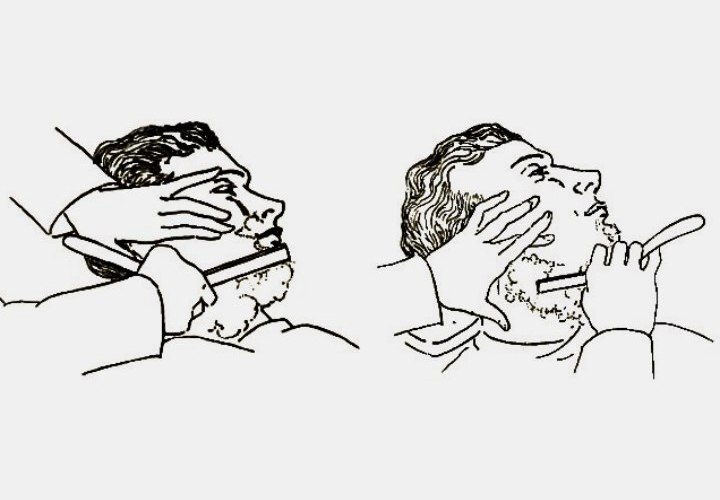The Origin of the word Barber

Q: Where does the word barber come from?
A: The word "barber" comes from the Latin word "barba". The meaning of "barba" is "beard".
The earliest records of barbers show that they were the most important men of their tribe. They were the priests and the medicine men. This was because primitive men were very superstitious and the early tribes believed that every individual was inhabited by good and bad spirits.
Barbers were the chief figures in religious ceremonies. During the ceremonies the hair was allowed to hang loosely over the shoulders so that the evil spirits could come out. After the dancing, the long hair was cut and combed back tightly so that the evil spirits could not get in or the good spirits not get out. This rule by barbers was a common thing in ancient Asia.
In ancient Egypt barbers were prosperous and highly respected. Papyrus and monuments show that the Egyptians shaved their beards and heads. Egyptian priests even went so far as to shave their entire body every third day. At that time barbers carried their tools in open baskets, and their razors were shaped like small hatchets with curved handles.
In ancient Greece barbers became into prominence as early as the 5th century BC. The wise men of Athens rivaled each other in the excellence of their beards. Beard-trimming became an art and barbers became leading citizens. Barber shops were frequented by poets, statesmen and philosophers, who came there to have their hair cut or their beards trimmed or curled and scented with expensive essences. They came to discuss the news of the day because barber shops were the headquarters for political, social and sporting news.
Barbers were unknown in ancient Rome until 296 BC, when Ticinius Mena came to Rome from Sicily and introduced shaving. Shaving became the fashion, and barbers shops became the gathering places for Roman dandies. No people were better patrons of the barbers than the Romans. They often devoted several hours per day to tonsorial operations, including shaving, hair cutting, hairdressing, massaging and manicuring. The great ladies of Rome always had a hairdresser among their slaves, and the rich nobles had private barbers.
When Hadrian became emperor of Rome beards became the fashion again, and for a good reason. Hadrian had a face covered with warts and scars. He allowed his beard to grow to cover these blemishes. The people of Rome imitated their emperor and grew a beard whether they needed it or not. Thereafter the fashion changed again to clean-shaven faces. Caesar was clean-shaven. As we see in history many times, the leaders of the state were the leaders of fashion and people were always ready to follow the prevailing styles.
©Hairfinder.com
See also:
Hair myths
The difference between a barber and a hairdresser
Is it better to see a female hair stylist?